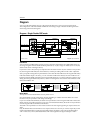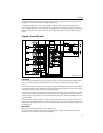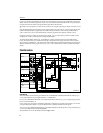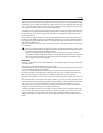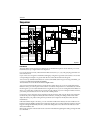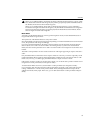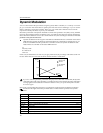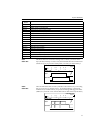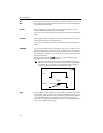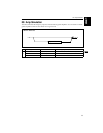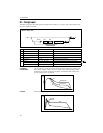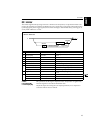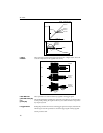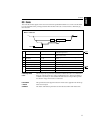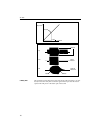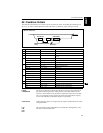
Dynamic Modulation
12
SW1
SW2
If the switches on the panel are assigned as a dynamic modulation source, set
SW1 to Modulation (CC#80) and SW2 to (CC#81) in P1 of Program Edit mode, or
P4 of Combination Edit mode.
Foot SW
If the assignable foot switch is assigned as a dynamic modulation, set Foot
Switch to Modulation (CC#82) in P1 of Global mode.
Then, you can control the effect from a footswitch connected to the SWITCH ter-
minal.
Foot Pedal
If the assignable pedal is assigned as a dynamic modulation, set Foot Pedal to
Foot Controller (CC#04) in P1 of Global mode.
Then, you can control the effect from a foot pedal connected to the PEDAL ter-
minal.
AUTOFADE
You can use AUTOFADE only for some effects such as size 2, 13: Stereo Chorus.
The effect is triggered by Note On data or the assignable switch. AUTOFADE
allows the modulation effect amount to fade in automatically. You cannot select
AUTOFADE as a modulation source for the effects/parameters that do not have
the AutoFade function.
In the parameter table, the mark appears to the right of the effect
parameters that have the AutoFade function.
The effect is off when a value for the dynamic modulation source speci-
fied for the AUTOFADE Src parameter is smaller than 64, and the effect is
on when the value is 64 or higher. The AutoFade function is triggered
when the value changes from 63 or smaller to 64 or higher.
Tempo
The modulation sources ranging from “Note number” to “MIDI CC#19” listed
on the table on pages 10 and 11 can be controlled via MIDI Control messages 0
through
±
127. On the other hand, Tempo information specified on the sequencer
or from the MIDI clock is used as a BPM value for the Tempo. Therefore, a
Tempo value of 127 (BPM) will create the same effect as created by the maximum
value (+127) of MIDI Control message.
On
Off
Fade-In Rate
AUTOFADE
AUTOFADE
AutoFade
D-mod



